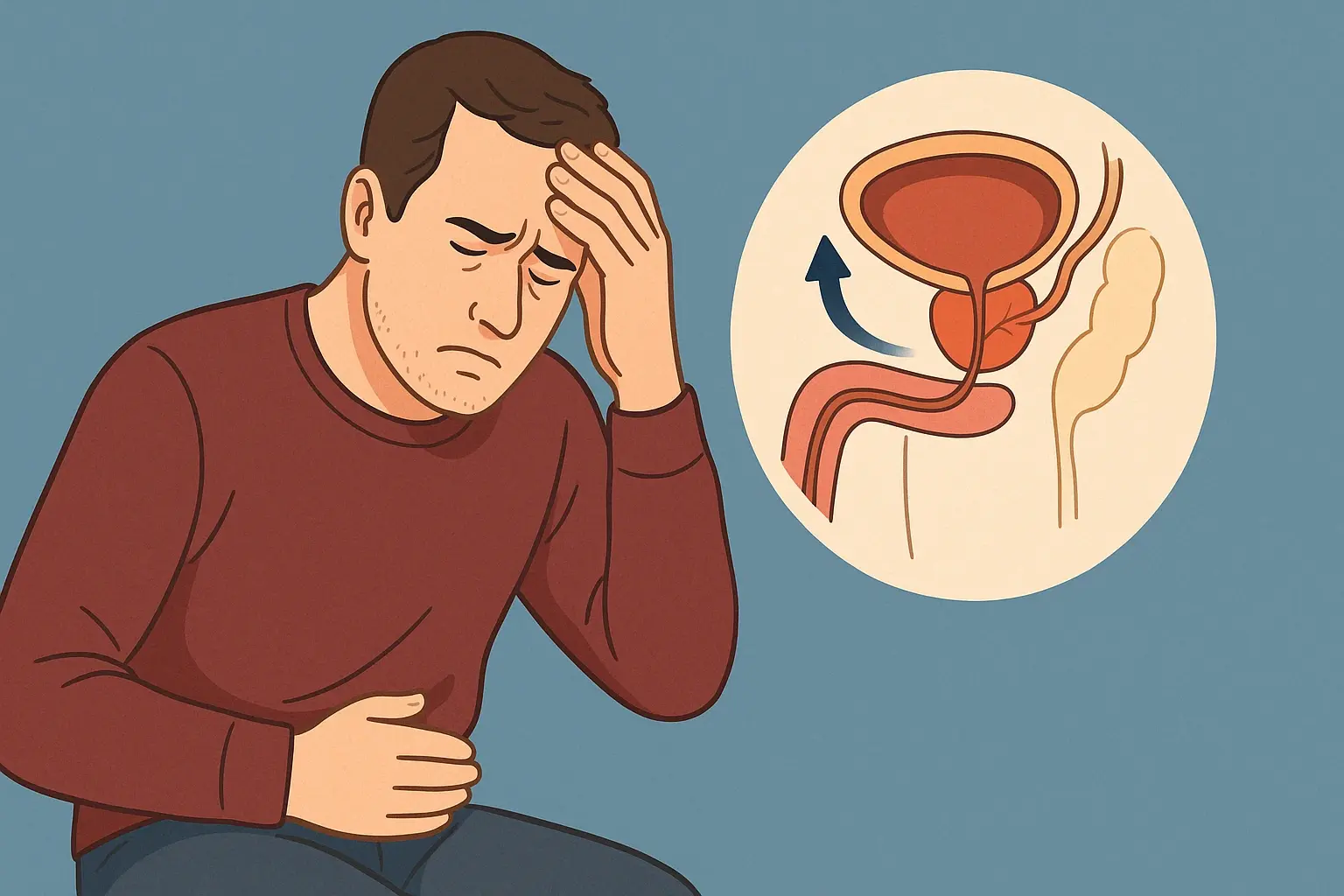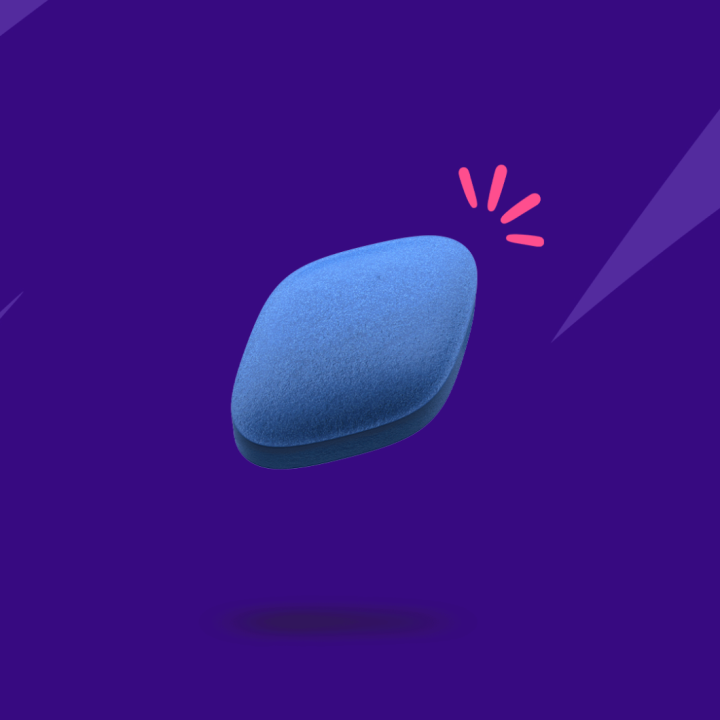
Retrograde Ejaculation in Bangladesh: Symptoms, Causes, Diagnosis & Treatment
Most men rarely talk about it, yet ejaculation problems are more common than many realize. These include premature, delayed, and the lesser-known retrograde ejaculation. Retrograde ejaculation happens when semen flows backward into the bladder instead of being released through the tip of the penis during orgasm. It’s usually not painful or harmful, but it can affect fertility — especially for couples in Bangladesh hoping to conceive. Often, the condition doesn’t cause physical discomfort but may signal underlying issues like diabetes, nerve damage, medication side effects, or prior pelvic surgery. This guide explains what it is, why it occurs, how common it is, and the treatment options available in Bangladesh.
What Is Retrograde Ejaculation
Retrograde ejaculation occurs when semen moves backward into the bladder instead of being released through the penis. This causes either a weak ejaculation or no visible semen, often called a “dry orgasm.” The orgasmic sensation typically remains normal.
Normally, semen forms when sperm from the testicles mix with fluids from the seminal vesicles and prostate gland. These travel through the urethra — the same passage used for urine — and are expelled during orgasm. During climax, a ring-like muscle at the base of the bladder (the bladder neck) tightens to keep semen from flowing backward. In retrograde ejaculation, this muscle does not close fully, so semen enters the bladder and later leaves the body with urine.
How Common Is Retrograde Ejaculation?
Retrograde ejaculation is uncommon but likely under-reported due to limited awareness. Global estimates suggest up to 2% of men may experience it, more often among those attending fertility clinics. In Bangladesh, it’s frequently linked to long-term diabetes and prior prostate or bladder procedures. Some prescription medicines can also contribute.
While not harmful, the condition can cause emotional stress — particularly for couples facing fertility challenges. Early consultation with a urologist and proper testing help determine whether it’s temporary, medication-related, or associated with another condition.
Symptoms of Retrograde Ejaculation
Common symptoms include:
- Little or no semen during orgasm (a “dry orgasm”)
- Normal orgasmic sensation but reduced ejaculate volume
- Cloudy urine after orgasm due to semen mixing with urine
The condition is typically painless and doesn’t directly affect erections or sexual pleasure, but the change in semen volume can be concerning — especially when trying to conceive.
Causes of Retrograde Ejaculation
The core issue lies in the bladder neck muscle, which should close tightly during orgasm. When it doesn’t, semen travels backward into the bladder instead of exiting the urethra. Common triggers include certain medications, pelvic or prostate surgeries, and medical conditions that affect nerve or muscle control.
Surgical Procedures
Retrograde ejaculation can follow surgeries involving the prostate, bladder, or pelvic nerves. Examples include:
- Prostate surgeries (TURP, HoLEP) for BPH
- Bladder or pelvic operations that affect the bladder neck or surrounding nerves
- Spinal or rectal surgeries that may disrupt nerve signals
Discuss potential sexual side effects with your urologist prior to any procedure.
Medical Conditions
Long-term illnesses that can impair nerve or muscle control include:
- Diabetes (diabetic neuropathy is a leading cause in Bangladesh)
- Multiple sclerosis (MS)
- Spinal cord injury or stroke
- Congenital abnormalities
Good blood-sugar control and early treatment of chronic illnesses can help reduce risk.
Risk Factors in Bangladesh
Men are at higher risk if they have diabetes, take specific medications, or have undergone prostate/bladder/pelvic surgery. In Bangladesh, diabetic neuropathy is a key driver. Studies indicate a high rate of retrograde ejaculation after certain prostate procedures like TURP or HoLEP.
- Long-standing or poorly controlled diabetes
- Past prostate or bladder surgery
- Use of alpha-blockers or select psychotropic drugs
- Neurological disease or injury
Keeping blood sugar controlled, choosing experienced surgeons, and attending regular check-ups can reduce risk and support long-term sexual and reproductive health.
Diagnosis of Retrograde Ejaculation
Diagnosis begins with symptom review, medical history, and a physical exam by a urologist. If semen volume is low or absent, doctors may check whether sperm is entering the bladder instead of being released normally.
Post-ejaculate urinalysis:
You provide a urine sample immediately after orgasm. A lab examines it under a microscope. Finding five or more sperm per high-power field (400×) confirms retrograde ejaculation. This test also helps rule out other causes of low semen volume (hormonal issues, duct blockages, medication effects). Most andrology and fertility clinics in Bangladesh offer this test confidentially.
Treatment for Retrograde Ejaculation
Treatment depends on the cause. Many men don’t require surgery unless fertility is affected or the condition causes persistent distress. Options typically include medication review, targeted medicines that increase bladder-neck tone, management of underlying diseases, and fertility procedures when pregnancy is a goal.
Changing or Adjusting Medications
If the condition begins after starting an alpha-blocker or certain antidepressants, a doctor may reduce the dose or switch medicines. Normal ejaculation can return after adjustments. Do not change prescriptions without medical guidance.
Medicines That May Help
There’s no medicine specifically approved for retrograde ejaculation, but some agents can help tighten the bladder neck and improve forward semen flow. These are prescribed based on your health profile:
- Imipramine
- Pseudoephedrine
- Antihistamines (e.g., chlorpheniramine)
- Phenylephrine
These medicines may cause side effects or increase blood pressure, so they must be used under medical supervision.
Managing Underlying Conditions
When diabetes or other chronic illnesses are responsible, treatment focuses on blood-sugar control and nerve health through diet, exercise, weight management, and appropriate medications. Many men who are not trying to conceive and feel comfortable with “dry” orgasms may not need active treatment but should continue periodic urology check-ups.
Fertility Treatments
Men wishing to have children can consider assisted reproductive techniques. Depending on the cause and sperm quality, specialists may recommend:
- IUI or IVF using ejaculated sperm (if present)
- IUI or IVF using sperm collected from urine after orgasm
- IVF using sperm surgically retrieved from the testicles (when needed)
A fertility specialist or reproductive urologist can advise the most suitable path for your situation.
Prevention of Retrograde Ejaculation
Prevention depends on the underlying cause. For men with type 2 diabetes, healthy habits lower risk and protect nerve function:
- Maintain a healthy weight and stay physically active
- Limit sugar and processed foods; emphasize fruits, vegetables, whole grains
- Keep blood glucose within target range with medical support
- Attend regular urology and endocrinology check-ups
In Bangladesh, where diabetes and prostate disorders are rising, ejaculation-sparing techniques for BPH (when appropriate) may be considered. Discuss options with your urologist.
Retrograde Ejaculation in Bangladesh: Frequently Asked Questions
Clear, expert-reviewed answers to common questions about retrograde ejaculation — what it is, why it happens, how it is diagnosed, and safe, practical treatments in Bangladesh.




